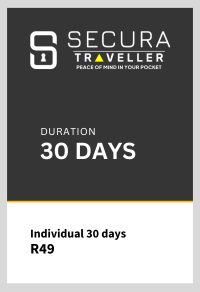Invitation: Western Cape Training - Disaster Risk Management for Hospitality and Tourism Establishments
Tourism enterprises in the Western Cape are integral to both the economic vitality and the global image of the region. Their commitment to the safety and satisfaction of international guests is essential.
Recent events, including power outages, droughts, floods, and fires, have revealed a vulnerability within many Western Cape tourism entities, highlighting a lack of preparedness for significant emergencies.
In response, the Western Cape Department of Economic Development and Tourism has appointed risk specialists, DMS NPC, to develop a guide on risk reduction strategies for tourism businesses. DMS NPC will also facilitate training on how tourism businesses can better prepare for disasters.
Disaster risk reduction training is not only a responsibility but also a strategic advantage for tourism businesses. By participating actively, they contribute to a safer, more resilient Western Cape—one that continues to attract and delight visitors from across the globe.
During February, four training sessions will take place across the province. Tourism businesses and local tourism offices are invited to attend.
Training Event Details
Area: City of Cape Town
Date: 26 February 2024
Time: 08h30 to16h00
Venue: Disaster Risk Management Centre
Address: C/O Frans Conradie & Hugo Street, 195 Hugo Street, Goodwood, Cape Town
Register: Here
Area: Cape Winelands
Date: 27 February 2024
Time: 08h30 to 16h00
Venue: Middelvlei Wine Estate
Address: Flamingo Street, Stellenbosch
Register: Here
Area: Garden Route
Date: 29 February 2024 or 1 March 2024
Time: 08h30 to16h00
Venue: George Lodge International
Address: 86 Davidson Road, George
Register: Here
Why Should You Attend
There are several persuasive arguments for why tourism businesses ought to proactively engage in disaster risk reduction training:
1. Visitor Safety and Confidence Safety is a fundamental concern for tourists.
- When travellers feel secure, they are more likely to explore, spend, and recommend a destination.
- By participating in disaster risk reduction training, tourism businesses can enhance their preparedness for emergencies. This includes understanding evacuation procedures, first aid, and communication during crises.
- Well-trained staff can effectively manage unexpected situations, reassuring visitors and maintaining their confidence in the destination.
2. Mitigating Reputation Damage
- Disasters, whether natural or man-made, can significantly impact a location’s image. Negative incidents can spread quickly through social media and news channels.
- Tourism businesses that invest in risk reduction training contribute to a positive reputation. They demonstrate their commitment to safety and resilience, even in challenging circumstances.
- A strong reputation attracts more tourists and encourages repeat visits, benefiting both individual businesses and the overall tourism sector.
3. Collaboration and Preparedness
- Disaster risk reduction training fosters collaboration among various stakeholders: businesses, government agencies, and local communities.
- Businesses learn about their roles in emergency response networks. They can coordinate efforts with other organizations, share resources, and support each other during crises.
- Preparedness ensures that tourism businesses can swiftly adapt to changing conditions, minimizing disruptions and maintaining continuity.
4. Economic Resilience
- Disasters can have severe economic consequences. Temporary closures, cancellations, and reputational damage can lead to financial losses.
- Trained businesses are better equipped to handle disruptions. They can implement contingency plans, diversify revenue streams, and recover more efficiently.
- Investing in risk reduction training is an investment in long-term economic resilience. It safeguards jobs, livelihoods, and the overall prosperity of the Western Cape.
Contact Details
For more information about this initiative please email Ms. Thandi Losi at Nomthandazo.Losi@westerncape.gov.za or phone 021 832 5782.























